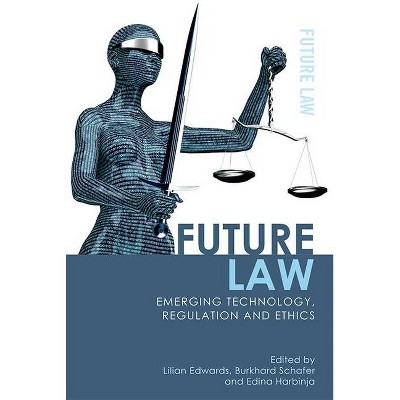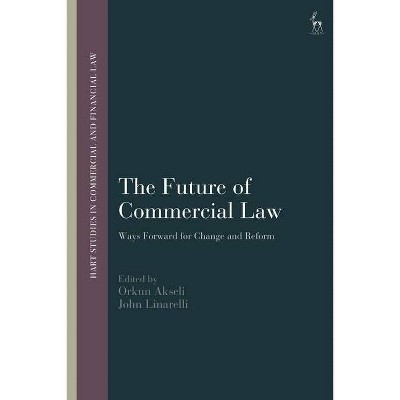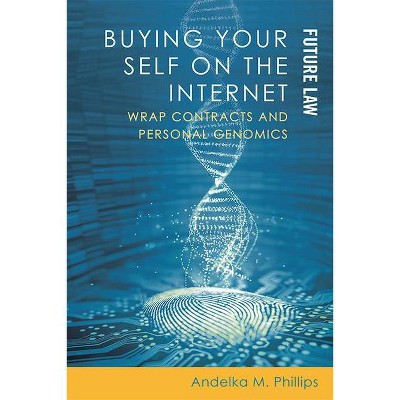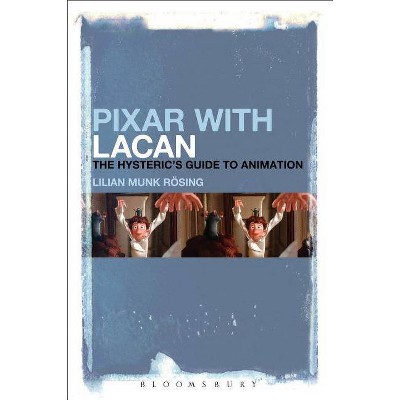Future Law - by Lilian Edwards & Burkhard Schafer & Edina Harbinja (Hardcover)

Similar Products
Products of same category from the store
AllProduct info
<p/><br></br><p><b> About the Book </b></p></br></br><p>How will law, regulation and ethics govern a future of fast-changing technologies? Bringing together cutting-edge authors from academia, legal practice and the technology industry, <em>Future Law </em>explores and leverages the power of human imagination in understanding, critiquing and improving the legal responses to technological change. </p><p/><br></br><p><b> Book Synopsis </b></p></br></br><p>How will law, regulation and ethics govern a future of fast-changing technologies? Bringing together cutting-edge authors from academia, legal practice and the technology industry, <em>Future Law </em>explores and leverages the power of human imagination in understanding, critiquing and improving the legal responses to technological change. It focuses on the practical difficulties of applying law, policy and ethical structures to emergent technologies both now and in the future. It covers crucial current issues such as big data ethics, ubiquitous surveillance and the Internet of Things, and disruptive technologies such as autonomous vehicles, DIY genetics and robot agents. By using examples from popular culture such as books, films, TV and Instagram - including 'Black Mirror', 'Disney Princesses', 'Star Wars', 'Doctor Who' and 'Rick and Morty' - it brings hypothetical examples to life. And it asks where law might go next and to regulate new-phase technology such as artificial intelligence, 'smart homes' and automated emotion recognition. </p><p/><br></br><p><b> From the Back Cover </b></p></br></br>How will law, regulation and ethics govern a future of fast-changing technologies? 'From current controversies over Internet content, privacy and radicalisation, to science fiction and "Black Mirror" visions of the future, pervasive fears exist that technology inevitably outpaces law and social control' - 'Future Law' responds to these fears by exploring how law and ethics can foresee and control new technologies that challenge our societal norms and expectations. Bringing together cutting-edge authors from academia, legal practice and the technology industry, this book explores and leverages the power of human imagination in understanding, critiquing and improving the legal responses to technological change. Key Features Focuses on the practical difficulties of applying law, policy and ethical structures to emergent technologies both now and in the future Covers crucial current issues such as big data ethics, ubiquitous surveillance and the Internet of Things, and disruptive technologies such as autonomous vehicles, DIY genetics and robot agents Asks where law might go next and how to regulate new-phase technology such as artificial intelligence, 'smart homes' and automated emotion recognition Uses examples from popular culture such as books, films, TV and Instagram - including 'Black Mirror', 'Disney Princesses', 'Star Wars', 'Doctor Who' and 'Rick and Morty' - to bring hypothetical examples to life Lilian Edwards is Chair of Law, Innovation and Society at Newcastle University Burkhard Schafer is Professor of Computational Legal Theory at the University of Edinburgh, and co-founder and co-director of the Joseph Bell Centre for Legal Reasoning and Forensic Statistics Edina Harbinja is Senior Lecturer in Media/Privacy Law at Aston University Edina Harbinja<p/><br></br><p><b> About the Author </b></p></br></br><p>Lilian Edwards is Chair of Law, Innovation and Society at Newcastle University. Her principal research interests are in the law relating to the Internet, the Web and new technologies, with a European and comparative focus. She also has close links with the Oxford Internet Institute. She is Associate Director, and was co-founder, of the Arts and Humanities Research Council (AHRC) Centre for IP and Technology Law (now SCRIPT). She has co-edited four bestselling editions of Law and the Internet (Hart Publishing, 1997, 2000, 2009 and 2018) with Charlotte Waelde and a collection of essays, The New Legal Framework for E-Commerce in Europe (Bloomsbury, 2005). <p>Burkhard Schafer is Professor of Computational Legal Theory at the University of Edinburgh. He is co-founder and co-director of the Joseph Bell Centre for Legal Reasoning and Forensic Statistics. <p>Edina Harbinja is Senior Lecturer in Media/Privacy Law at Aston Law School, Aston University.<p>
Price History
Cheapest price in the interval: 125 on November 8, 2021
Most expensive price in the interval: 125 on December 20, 2021
Price Archive shows prices from various stores, lets you see history and find the cheapest. There is no actual sale on the website. For all support, inquiry and suggestion messagescommunication@pricearchive.us




















